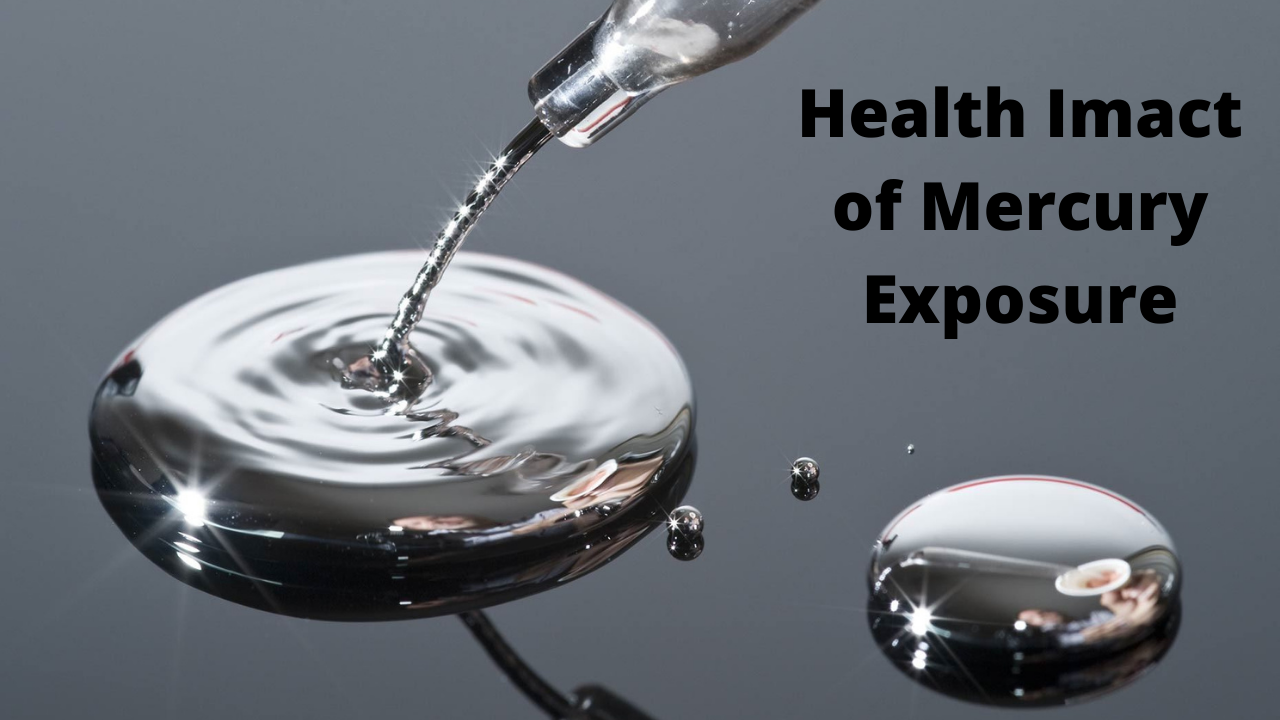Are you concerned about the health impact of mercury will have on your body? Mercury has been in use since before the creation of the modern-day and is still in use today. Mercury is a natural element, but when separated from the rest of the elements in which it naturally exists, it becomes toxic. This is because mercury is a heavy metal.
Table of Contents
What Is Mercury Poisoning?
What is Mercury?
Mercury is a chemical element with the atomic number 80 and the symbol Hg. It is a liquid metal, a soft, silvery gray, gray-white, or colorless, odorless, tasteless, and non-toxic metal. It is found in low concentrations of the metal ores such as cinnabar or mercuric sulfide. It is an element that is essential to life. It is found naturally in the environment, which makes it ubiquitous.
However, in high concentrations, the health impact of mercury can be toxic to humans and animals, causing various health problems. It is also known to cause environmental pollution – it is the second most ubiquitous element on the planet, as it is found in coal-fired power plants, automobile emissions, and industrial factories.
What are the products that contain or are made with mercury?

Mercury is a toxic, naturally occurring metal that is found in the earth’s crust. It is found naturally in rocks and water and is used to make many everyday products, including plastics, glass, and dental fillings. In the United States, most mercury is found in the form of mercury fillings used in dental fillings, which are comprised of silver amalgam.
Mercury is an element that has been used since ancient times, and it has shown up in everything aside from dental fillings to water disinfectors. The liquid metal has been used in thermometers, barometers, and thermometers. It has even been used in batteries, which are used in a lot of electronic devices. As it turns out, mercury is toxic, and it can also be lethal when ingested. Approximately 100,000 people die each year from mercury poisoning, and a significant percentage of these deaths occur in developing countries.
How Can Mercury Get or Absorbed By Our Body?
Before the days of vaccines and pollution control measures, mercury was a known poison known for its devastating health effects. You can get mercury in your body from a number of different sources, including air, water, fish, and food. Its metallic form was particularly hazardous, as it could easily be absorbed through the skin by inhalation, and even worse, it was known to cause mercury poisoning.
The ingestion of even a small amount of mercury can cause a variety of health problems, including memory loss, lower IQ, damage to the nervous system, and other neurological disorders.
How Much Mercury Is Too Much?
Mercury is most harmful when it stays in the body for a long time. The most common amount of mercury that is allowed to enter the body is 20 micrograms every week. However, the recommended amount is ten micrograms every week.
Although the risks and health impact of mercury exposure are well known, the effects of low levels of mercury exposure are not always clear. The low level of mercury has been linked to abdominal pain, headaches, diarrhea, loss of balance, and more. But, there are no solid answers on the health effects of low levels of mercury exposure.
Can Mercury Cause Kidney Damage?

While it is true that a few people exposed to high levels of mercury may develop kidney damage, the FDA and medical experts say the risk of mercury kidney damage is very low. To put things into perspective, the average American consumes between 0.5 to 1.3 grams of mercury a day, and only 1% of that amount can affect the kidneys. The greatest risk to kidney health comes from the inhalation of mercury vapor.
What are the Effects of Mercury to our Body?
As the first heavy metal to be discovered, it was known to be harmful since ancient times. However, its real impact as a toxic substance was only realized in the last century, when it was revealed to be a neurotoxin. It is also known to be a powerful immunotoxin. Being a dangerous substance, the effect of mercury exposure can cause adverse health effects and has been linked to various diseases such as asthma, allergies, neurological disorders, renal failure, diabetes, soft tissue cancer, and cardiovascular diseases.
Mercury can cause lasting damage to the body. The World Health Organization (WHO) estimated in 2016 that around 60% of the world’s population is exposed to unsafe levels of mercury. Mercury is a proven neurotoxin that can cause neurological disorders such as ADHD, autism, depression, and dementia. Mercury is also a potent trigger of inflammation, which is known to cause a host of chronic diseases, including heart disease, cancer, and diabetes.
Is there also mercury in the ocean?
Mercury can be found as a contaminant in a variety of marine ecosystems, with the highest concentrations found in areas of heavy industrialization and in the waters surrounding some kinds of land-based mining operations, such as coal mines and lead-zinc mines. The presence of heavy metals in the ocean can pose several problems for marine life, as the metal can accumulate through the food chain and consequently affect fish and other marine animals. Mercury, in particular, is a problem for fish, which can accumulate in their bodies, and ultimately become toxic to them.
Does Eating Fish Means You Are Already Consumed Mercury?
It’s no secret that mercury is a scary word. The health impact of mercury is toxic to the nervous system, especially to the developing brain. While people have been debating about the health impact of mercury and its effects on the environment, a new study was published that calls for a ban on all mercury products. And in recent years, more and more evidence has shown that mercury can be found in seafood, even though it’s not supposed to. In a new study, researchers have found that a typical human gets a dose of mercury every time they eat a fish.
To be clear, fish is not toxic in and of itself. Rather, consuming fish is harmful to human beings because of the mercury contained in fish. While mercury is not dangerous in isolation, the risks of mercury poisoning are higher when mercury is consumed with other toxic substances such as pesticides, which are often found in fish.
But mercury is not the only way that fish can be dangerous. It’s also caused by a parasite called Mycobacterium marinum. This bacterium lives in the gills of certain fish, and when eaten by humans, it can cause serious health problems, including immune disorders, neurological disorders, and even cancer.
Can You Reduce Mercury in Your Body?
Mercury contamination is a huge problem, especially for countries that consume more fish per person than any other country in the world. The most important sources of mercury in the diet are fish from lakes and rivers, which are typically heavily contaminated with mercury. The most commonly recommended way to reduce your mercury exposure is to eat smaller portions of fish and/or less fish, adding that this may not be possible for everyone due to a variety of other factors that may be deterring you from cooking fish.
Although the health impact of mercury and many pollutants are dangerous to our health, some, such as mercury, can be especially dangerous if they are allowed to build up in our bodies without prompt action. Because of the myriad chemicals involved in everyday life, it is incredibly difficult to avoid exposure to toxins, but making a concerted effort to minimize the amount of time spent in potentially harmful areas can go a long way in protecting your health. Also, as part of knowing how to reduce the bad effects of mercury, you might want to try Root Clean Slate, which is a supplement that can help remove toxic heavy metals from the body. This supplement will play an important role in removing mercury from the body.
Recent Posts
You love watching your little one grow and learn new things every day, but early signs of speech delay can sometimes go unnoticed. Observing your toddler's developmental milestones is crucial in...
Zeolite, a volcanic mineral known for its detoxification properties, is gaining popularity in the health industry. Parents often wonder if it is safe and effective for their children. In this...


